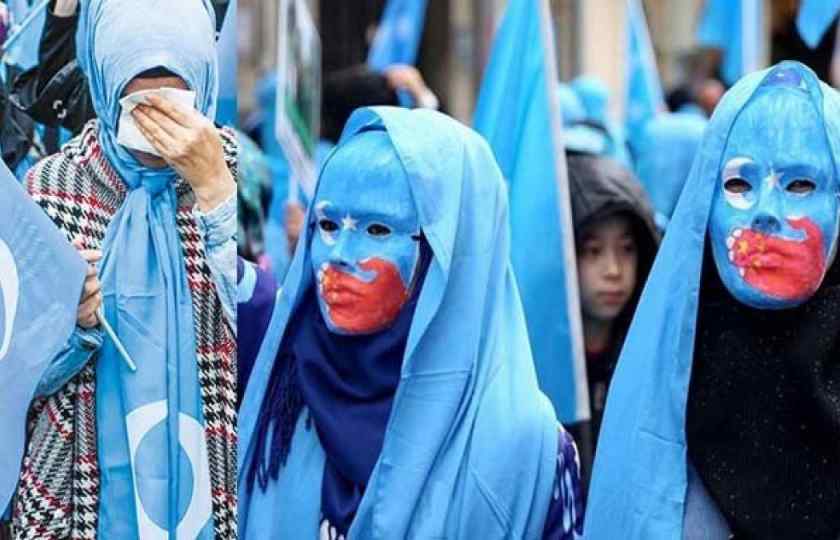In the remote region of Xinjiang in China, a humanitarian crisis has been unfolding for years, largely unnoticed by the international community. The Uyghur Muslims, an ethnic minority group, have been subjected to severe human rights abuses and persecution by the Chinese government. This article aims to shed light on the plight of the Uyghur Muslims, the atrocities committed against them, and the urgent need for global attention and action.
Historical Context
The Uyghur Muslims have a rich cultural and historical heritage that dates back centuries. They are a Turkic-speaking ethnic group predominantly residing in the Xinjiang Uyghur Autonomous Region of China. For many years, they have faced discrimination and marginalization due to their distinct religious and cultural practices. However, the situation escalated dramatically in recent years, with the Chinese government implementing repressive policies targeting the Uyghur population.
The Crackdown on Uyghur Muslims
Since 2017, the Chinese government has intensified its crackdown on the Uyghur Muslims, justifying it as a necessary measure to combat extremism and terrorism. However, the reality on the ground tells a different story. Reports from human rights organizations, testimonies from survivors, and leaked government documents have revealed a systematic campaign of oppression and persecution against the Uyghur population.
Forced Detention and "Reeducation" Camps
One of the most alarming aspects of the Chinese government's crackdown is the mass detention of Uyghur Muslims in what they euphemistically call "reeducation" camps. These camps are essentially internment centers where Uyghurs are forcibly detained without due process or legal representation. The conditions inside these camps are reported to be deplorable, with overcrowding, torture, and indoctrination being common practices.
Cultural Suppression and Surveillance
In addition to the mass detentions, the Chinese government has implemented a range of measures aimed at suppressing Uyghur culture and religious practices. Mosques have been demolished, Uyghur language has been banned in schools, and traditional customs have been discouraged. The government has also implemented a sophisticated surveillance system, with facial recognition technology and widespread monitoring of Uyghur communities, further infringing on their privacy and freedom.
Forced Labor and Human Rights Violations
There have been numerous reports of Uyghur Muslims being subjected to forced labor in factories across China. These factories supply major global brands, implicating them in the exploitation of Uyghur workers. The forced labor practices not only violate basic human rights but also contribute to the perpetuation of the Uyghur population's economic marginalization.
International Response and Challenges
Despite mounting evidence of the atrocities committed against the Uyghur Muslims, the international response has been largely inadequate. Some countries have expressed concerns, but concrete actions have been limited. The Chinese government's economic and political influence, coupled with the lack of a unified global stance, has hindered effective intervention.
The Role of Technology Companies
One controversial aspect of the Uyghur crisis is the involvement of technology companies in facilitating the surveillance and repression of the Uyghur population. Companies like Huawei and Hikvision have been accused of providing the Chinese government with surveillance technology used to monitor Uyghur communities. The complicity of these companies raises ethical questions and highlights the need for stricter regulations and accountability in the tech industry.
FAQ (Frequently Asked Questions)
. **Q: What is the current situation of the Uyghur Muslims in Xinjiang?**
- A: The Uyghur Muslims in Xinjiang are facing severe human rights abuses, including mass detentions, cultural suppression, forced labor, and surveillance.
. **Q: Why is the international response to the Uyghur crisis limited?**
- A: The Chinese government's economic and political influence, coupled with the lack of a unified global stance, has hindered effective intervention.
. **Q: Are technology companies involved in the Uyghur crisis?**
- A: Yes, some technology companies have been accused of providing surveillance technology used to monitor Uyghur communities.
. **Q: What can individuals do to support the Uyghur Muslims?**
- A: Individuals can raise awareness, support human rights organizations working on the issue, and put pressure on governments and companies to take action.
. **Q: What is the long-term solution to the Uyghur crisis?**
- A: A comprehensive and coordinated international response is needed, including targeted sanctions, diplomatic pressure, and support for Uyghur rights and autonomy




